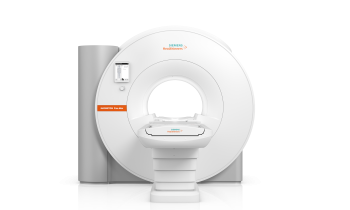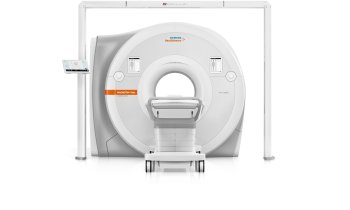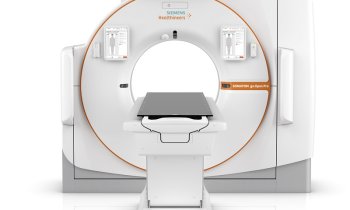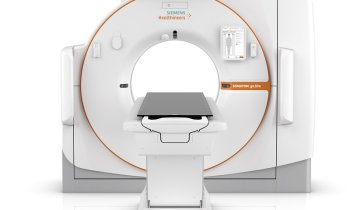Perspectives on healthcare inequality
For some, ‘life’s a bitch’ with unfairness and suffering an integral part of it. Many more people actually do not expect any better than the barrenness and misery in which they live, EH Malta Correspondent Moira Mizzi reflects.
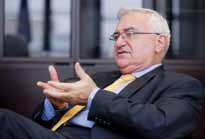
‘Inequality in quality of life between different factions of society thus goes beyond accessibility to a necessary modality but also reaches out to encompass the way of thinking and being at an individual as well as societal level. Health is no exception and inequality in health is a bleak reality even in the European Union, despite being one of the richest and most developed continents by today’s standards’
The World Health Organisation, which insists that every human being is entitled to good health, defines health as a state of complete physical, mental and social wellbeing, not merely the absence of disease or infirmity. It also defines health inequalities as differences in health status or in the distribution of health determinants between different population groups. This could entail differences in mobility between the older and younger generation, in mortality rates between social classes, or indeed in healthcare accessibility for financial reasons or logistics.
In a nutshell, even health inequality could be looked at from physical, psychological or social perspectives.
Currently the EU faces three well-known challenges to health quality and sustainability: demographic changes, including patterns of population ageing; recent pandemics, major physical and biological incidents and bioterrorism; rising obesity, smoking, alcohol, drugs and sex habits, especially of young populatios, not to mention the rise of mental ill-health at the workplace. Last but not least, the recent technology revolution has changed our healthcare systems radically, at a public health level and at the bedside.
Inequality in health was one of the first issues tackled by the then in-coming Health Commissioner John Dalli, who said ‘.the enjoyment of the highest attainable standard of health is one of the fundamental rights of every human being, not a mere expenditure or cost to society, but an investment for growth and thus money spent on health is money well spent’. He insists that, the ‘best way forward is thus to improve health systems, making them as sustainable as possible and that involves a mind change across the board; we need innovative and sustainable health systems’.
He cites two ways to progressively change the mind set. Primarily, the patient should be supported to be more empowered to care for his own health and to seek the best in the field for his treatment, even if this is outside his homeland. The patient also should be informed more about his/her mediation and treatment and be educated in seeking hospital care only when necessary to reduce both the logistics and financial burden in that sector, and to use community care as much as possible. ‘Information about their treatment should be made accessible to them,’ John Dalli emphasises. ‘They have the right to choose by whom and where they are treated, and this stresses the importance of the set-up of crossborder healthcare.’
To reach sustainability, he insists, health systems in every EU Member State need to analyse what is happening today, shift to new ways of working and push to change the mind set in delivering health. ‘We need to move caring out of hospitals and into the community because hospitals cost a lot of money,’ he explains. ‘Working in teams could also support better and more sustainable health systems.’ The Commission’s role is to assist all Member States to draw up the necessary structure, hopefully to curb abuse, and to propose the financial systems to health projects (2014 onwards) to support Member States to invest in health systems.
Malta is the smallest EU Member State. With about 450,000 inhabitants, far fewer than those in most capital cities of other EU Member States, this miniscule Mediterranean island has a unique healthcare system – it is the only member state where all healthcare is free to all its citizens and registered long-term residents. The service is funded through general taxation and overseen by the Ministry of Health, headed by psychiatrist Dr.Joe Cassar as Health Minister. Despite its size and limitations in resources at many levels, the standard of care is rated as one of the best in the EC, as regularly seen in statistics from international and official organisations such as the WHO, EUROSTAT and OECD.
Malta’s has one general hospital, housing all hospital-based care excluding oncology and dermatology; another hospital with oncology and dermatology departments and a genito-urinary clinic; a geriatric rehabilitation hospital and a nursing home for elderly patients requiring long-term 24/7 care. Much effort is being channeled into community care, both to make healthcare more easily accessible and to reduce held a pole position and geriatric patients have always been offered the spectrum of healthcare necessary, whatever their age. Oncology and mental health are also being boosted – in fact the oncology department will open a facility in the general hospital in 2013.
Patients in Malta are also entitled to free medication for most chronic conditions and citizens at the lower society stratum receiv all medication free after rigorous means testing. One major challenge to any health system is ensuring that the mass of patients receive the best care. In this, Malta is no exception and the fact the service is provided free further adds to the intricacy and burden that surround this issue. A lot of effort has also been made to strengthen community care and trying to educate the public to use the system responsibly. In fact long waiting lists, one of Malta’s main healthcare hurdles, have been counteracted by working longer hours in out-patients and radiology departments and doing extra elective surgical procedures – even on Sundays.
Educating the public has proved a tougher nut to crack. Misuse of the A&E for minor ailments is still rampant as is a flagrant abuse of free medication by some patients. The Maltese healthcare story gives one perspective of the ways in which health inequality can be tackled and the hurdles faced. Although rendering the sterling services accessible to everyone is a commendable way of bridging the gap, misuse of the system due to lack of public education and unsustainable practices from some of the staff can itself lead to a lack of accessibility of some services.
Bridging inequality in any healthcare system involves sustainable practices and an overall mind-set change from patient to healthcare professional to administrator, not just a fair distribution and accessibility of services. Our health needs to be a shared responsibility between the individual and his society not just an unquestionable right to be passed on by our legislators and administators. the load from the general hospital. In fact, community healthcare comprises four main primary healthcare clinics and a number of district clinics and geriatric homes that offer care and support to more independent elderly citizens.
For decades, geriatrics has held a pole position and geriatric patients have always been offered the spectrum of healthcare necessary, whatever their age. Oncology and mental health are also being boosted – in fact the oncology department will open a facility in the general hospital in 2013. Patients in Malta are also entitled to free medication for most chronic conditions and citizens at the lower society stratum receiv all medication free after rigorous means testing.
One major challenge to any health system is ensuring that the mass of patients receive the best care. In this, Malta is no exception and the fact the service is provided free further adds to the intricacy and burden that surround this issue. A lot of effort has also been made to strengthen community care and trying to educate the public to use the system responsibly. In fact long waiting lists, one of Malta’s main healthcare hurdles, have been counteracted by working longer hours in out-patients and radiology departments and doing extra elective surgical procedures – even on Sundays.
Educating the public has proved a tougher nut to crack. Misuse of the A&E for minor ailments is still rampant as is a flagrant abuse of free medication by some patients. The Maltese healthcare story gives one perspective of the ways in which health inequality can be tackled and the hurdles faced. Although rendering the sterling services accessible to everyone is a commendable way of bridging the gap, misuse of the system due to lack of public education and unsustainable practices from some of the staff can itself lead to a lack of accessibility of some services.
Bridging inequality in any healthcare system involves sustainable practices and an overall mind-set change from patient to healthcare professional to administrator, not just a fair distribution and accessibility of services. Our health needs to be a shared responsibility between the individual and his society not just an unquestionable right to be passed on by our legislators and administators.
10.07.2012







